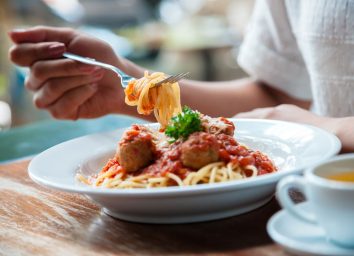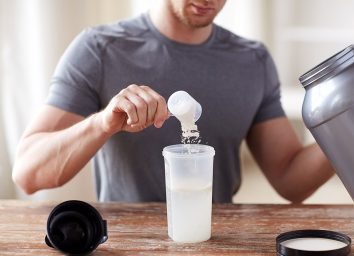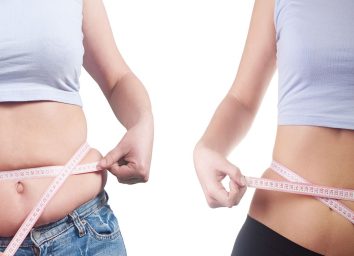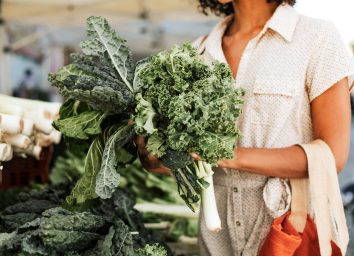15 Food Myths That Cause Weight Gain
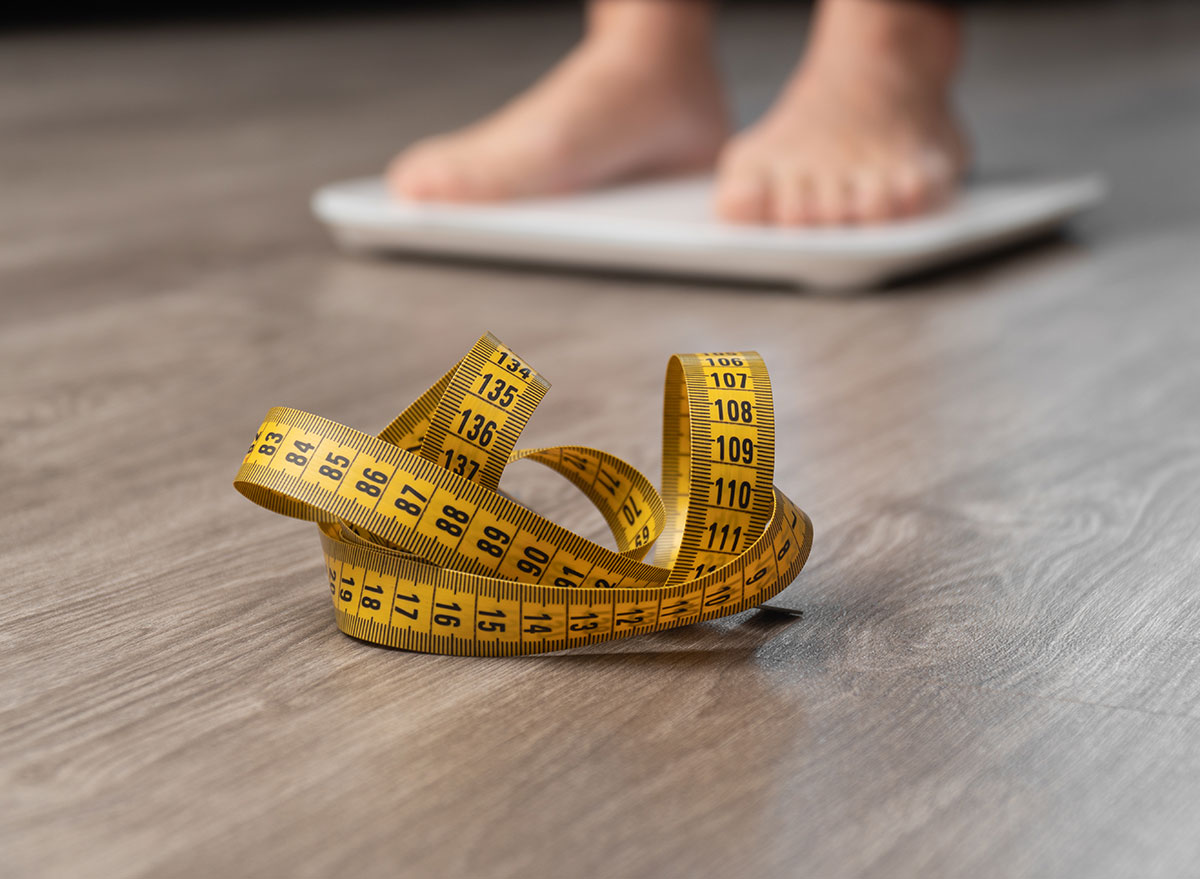
Being gullible can get the best of us into trouble. And when it comes to watching your weight, if you naturally trust in every tip or trick you hear whether it's from your best friend or a product label, you're setting yourself up for some serious scale issues. Blindly believing without asking questions or doing your own research is one of the easiest ways to set those numbers at a standstill or send them in the opposite direction.
Forget everything you thought you knew because we've rounded up a few tried-and-not-so-true weight loss hacks. For instance, did you know that it's possible to overdo it on the healthy stuff? That's just one of the weird reasons why you're gaining weight so fast. Sometimes the secret to slimming down isn't based on what you need to do, but what you need to stop doing, so get ready to ditch these debunked diet myths. Instead, focus on these 21 Best Healthy Cooking Hacks of All Time!
You rely on labels.
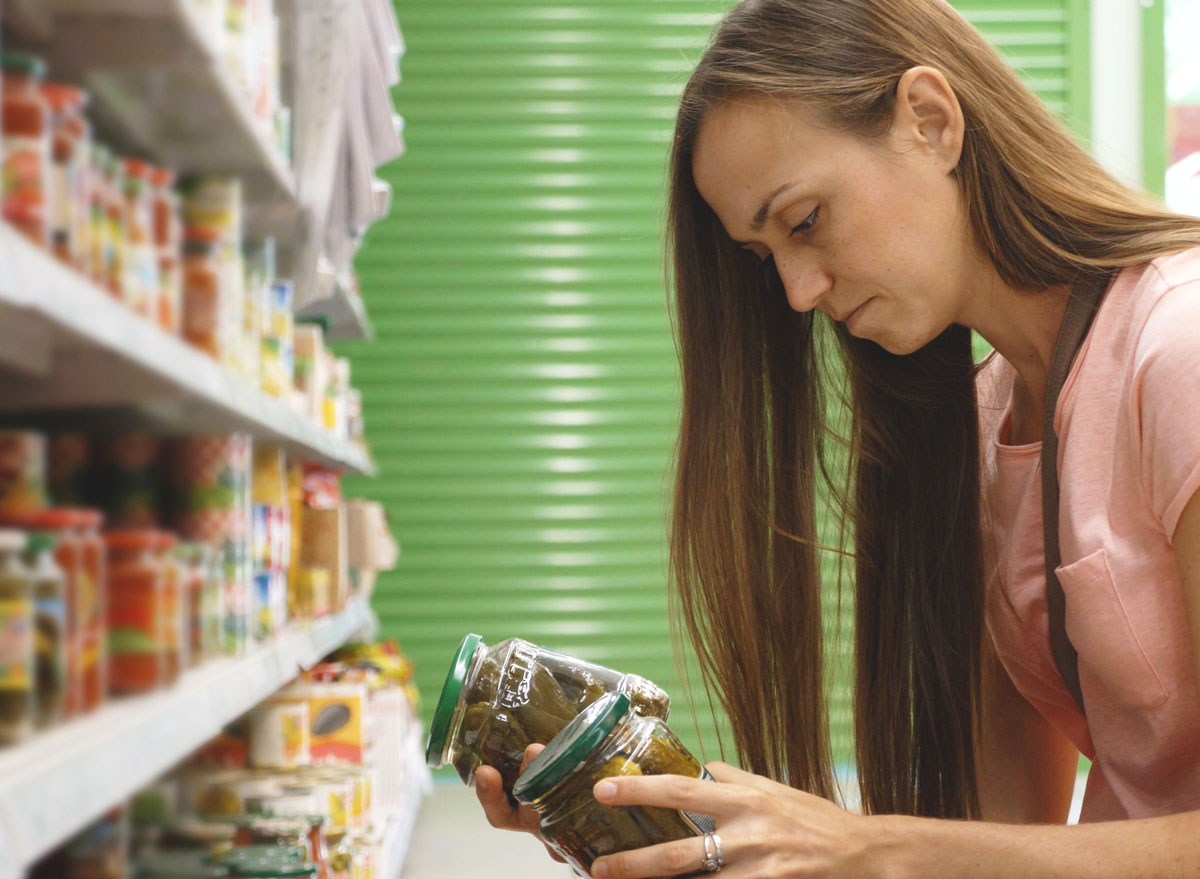
Don't let your guard down at the supermarket, even if you shop at so-called "health" stores. Thanks to sneaky marketing strategies, seemingly nutritious nibbles can thwart your weight-loss efforts if you aren't paying enough attention. We know it may seem like a good idea to snack on dried fruit or flavored yogurts, but just because something appears healthy or is advertised that way doesn't mean it isn't doing as much damage as a bag of chips or a couple cookies. Look out for low-fat finds that make up for their loss with excessive carbs and salt, as well as gluten-free options packing on way more calories than you'd think. Better yet, read up on The 25 Worst 'Healthy' Snacks For Weight Loss and clean out your cupboards.
You get rid of the yolk.
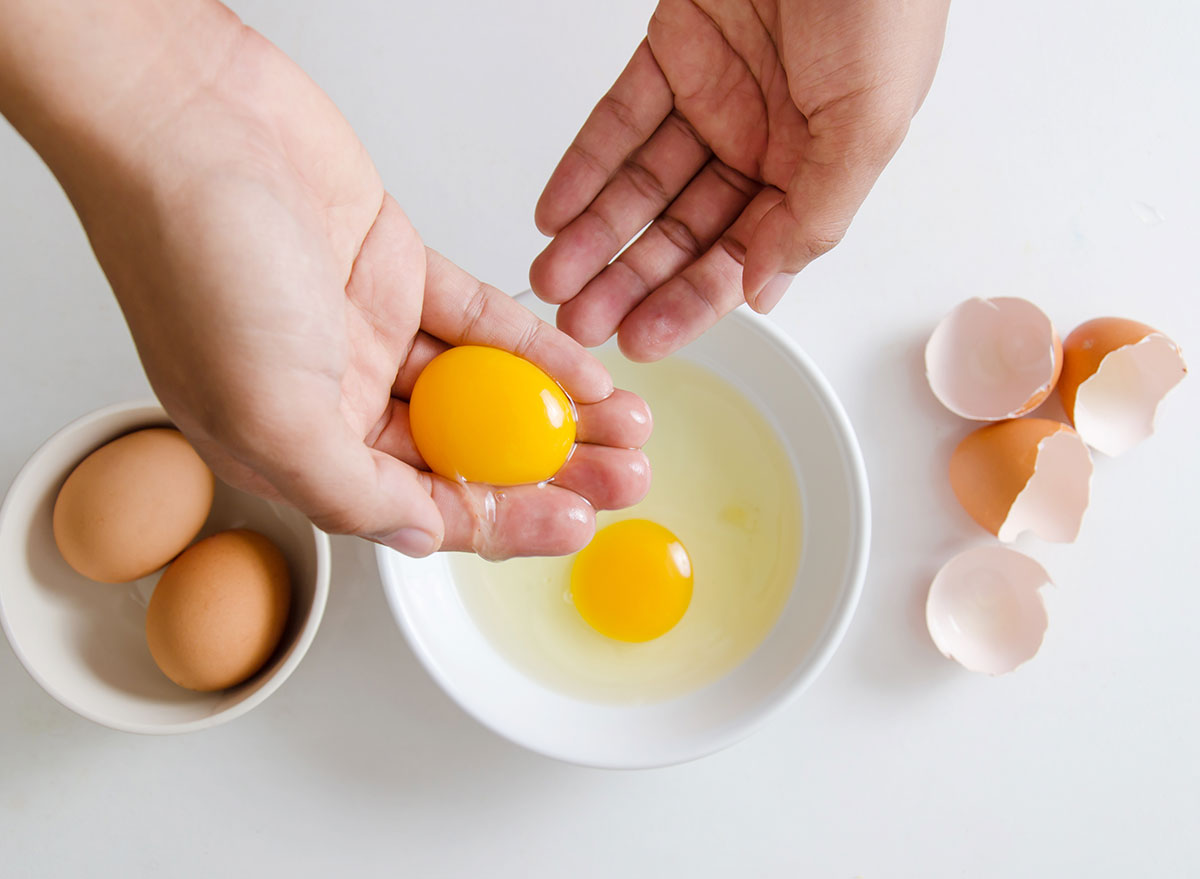
Opting only for egg whites doesn't mean you've cracked the code. In fact, the opposite is true. By throwing out half the egg, you're not just missing out on half the protein (yes, there is egg protein in the yolk), but on all the healthy fatty acids and micronutrients like immune-boosting selenium and B-vitamins. We know you may have heard that the yellow interior of this beloved breakfast item is where the cholesterol lies, but dietary cholesterol doesn't have an impact on blood cholesterol levels. In fact, researchers from Wake Forest University found that there isn't a link between heart disease and egg consumption. Looks like you should be saying yes to yellow.
You're eating a lot of protein.
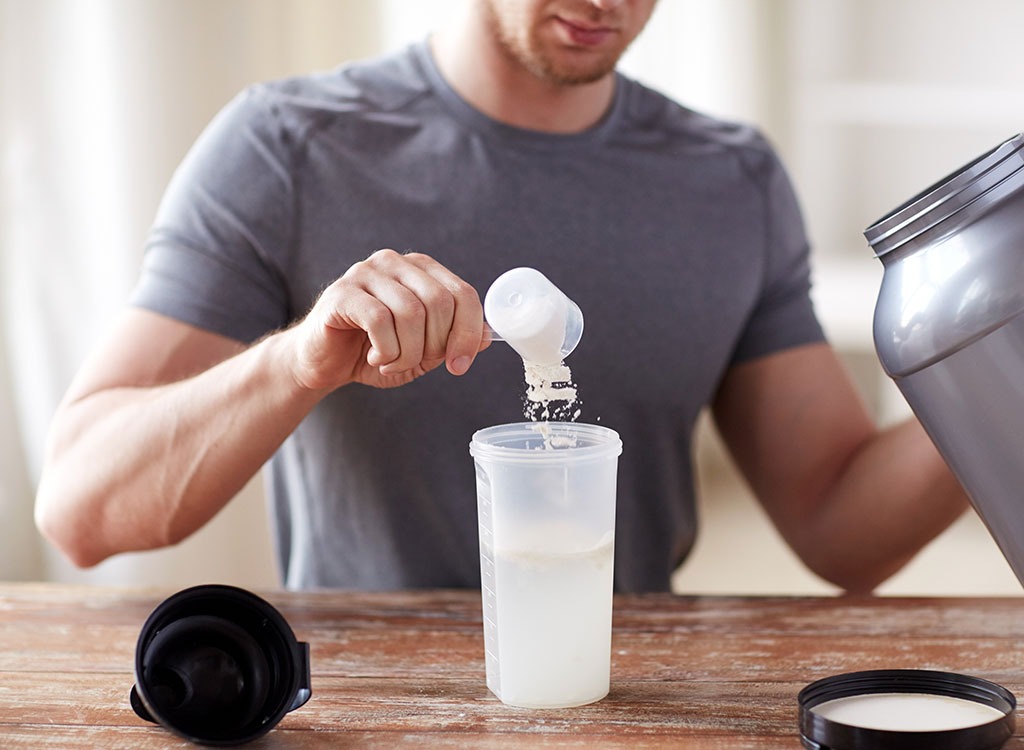
Everything in moderation, right? True, but that's not just a rule for sugar and sodium consumption—it applies to the good stuff as well. So instead of simply shoveling in protein, put some thought into it. Otherwise, you could be eating an excessive amount of protein that's not boosting your muscle mass, but actually getting stored as fat. This might be why a Clinical Nutrition study found high-protein dieters are 66 percent more at risk of dying than those eating less protein. Your body can only handle about 30 grams protein max in one sitting, which you can easily reach with one shake, depending on the brand.
You only drink water.

It's no secret that when it comes to healthy hydration, H2O reigns supreme over all over drinks. That being said, don't miss out on a cup of morning joe or green tea because you're too busy slugging back a bottle of water. Green tea is a metabolism-boosting beverage and, as long as you limit the sugar or sweetener you're spooning in, coffee can be as well. A study in Physiology and Behavior found a higher average metabolic rate in caffeinated coffee drinkers over decaf.
You go to sleep on an empty stomach.
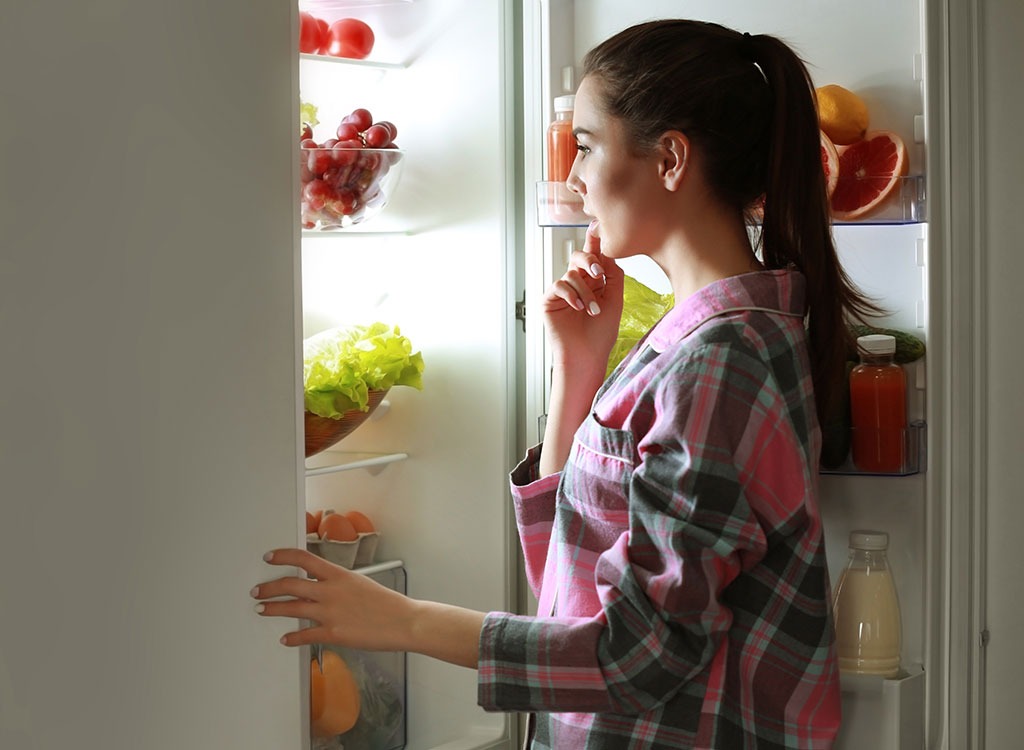
There's no need to lock up the fridge as soon as you've washed your dinner dishes. Of course, we're not saying you should be ripping open a bag of chips or digging into a carton of ice cream for a midnight snack, but we are saying you shouldn't bash eating before bed. According to Cassie Bjork, RD, LD of Healthy Simple Life, going to sleep hungry can lower your blood sugar levels and lead to a restless night. Not only will that show itself in your carb cravings the next day, but she says, "Eating the right snack can help keep blood sugars stable so the fat-burning hormone glucagon can do its job." Cassie recommends that a mini meal before bed should include a carb and fat, like a tangerine and 1/4 cup of macadamia nuts.
You Choose Sea Salt
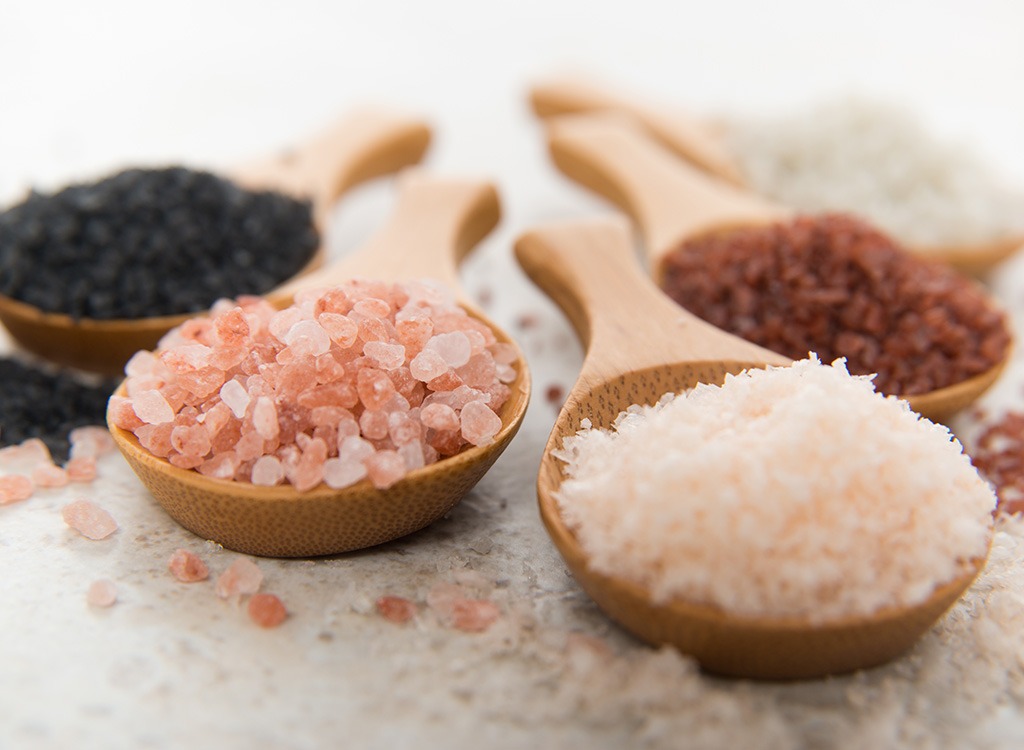
Have you ever wondered why it is that you reach for sea salt shakers at the grocery store over the regular table salt? You were probably told somewhere down the line that it's a healthier option but think again. The only difference, besides the higher price, is that sea salt comes from evaporated ocean water while the other kind is mined. The magnesium and iron in sea salt are only significant if consumed in dangerously high amounts, or that both variations contain the same 2,300 milligrams of sodium per teaspoon. So save your money and walk out with the traditional stuff. It's fortified with iodine, which is essential for your thyroid gland to function properly; otherwise, it may become inactive and lead to weight gain. Looks like table salt is your best bet—in moderation, of course.
You count calories.
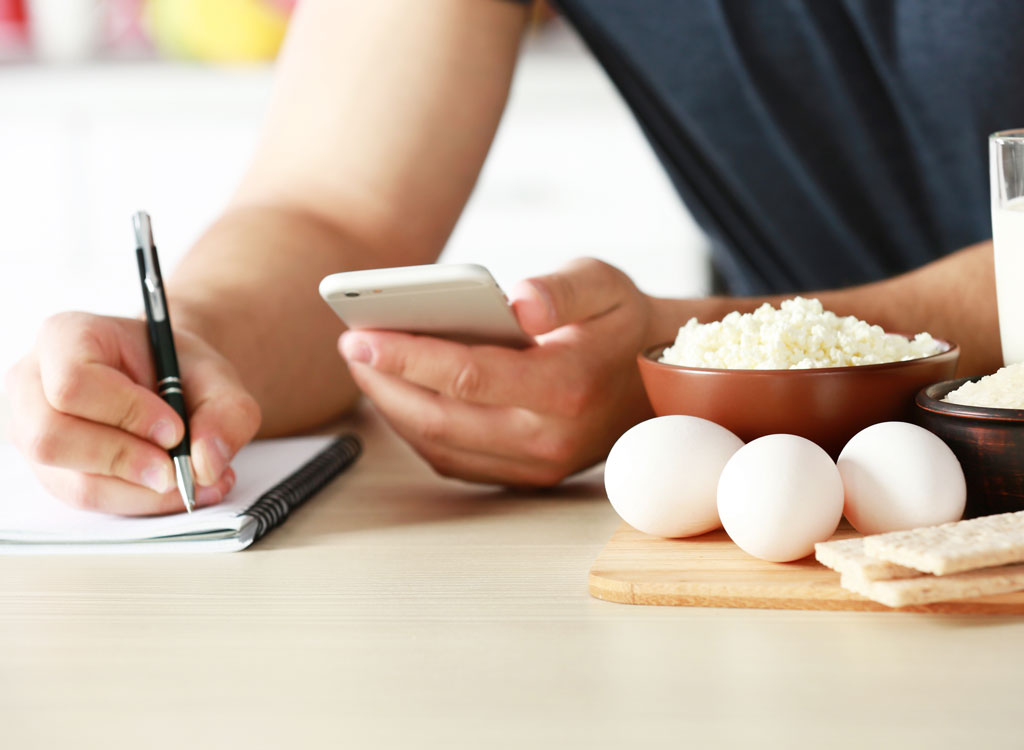
When it comes to weight loss, it's all about looking at the bigger picture instead of narrowing in on one aspect. You don't want all of your eggs in one basket, so if you're only focus is how many calories you're consuming, it's time to widen your range. Counting calories can actually be counterproductive if you aren't also taking into account the fat, sodium, carb, and sugar levels in each bite you're taking; 300 calories of grilled chicken and 300 calories of Oreos are clearly going to do very different things to your body. Some foods are rich in metabolism-boosting nutrients while others are simply going to spike your blood sugar and slow down your digestion. It's a lot to keep in mind, but it'll benefit your body far more than just calculating your daily calorie intake will.
You opt for low-fat products.
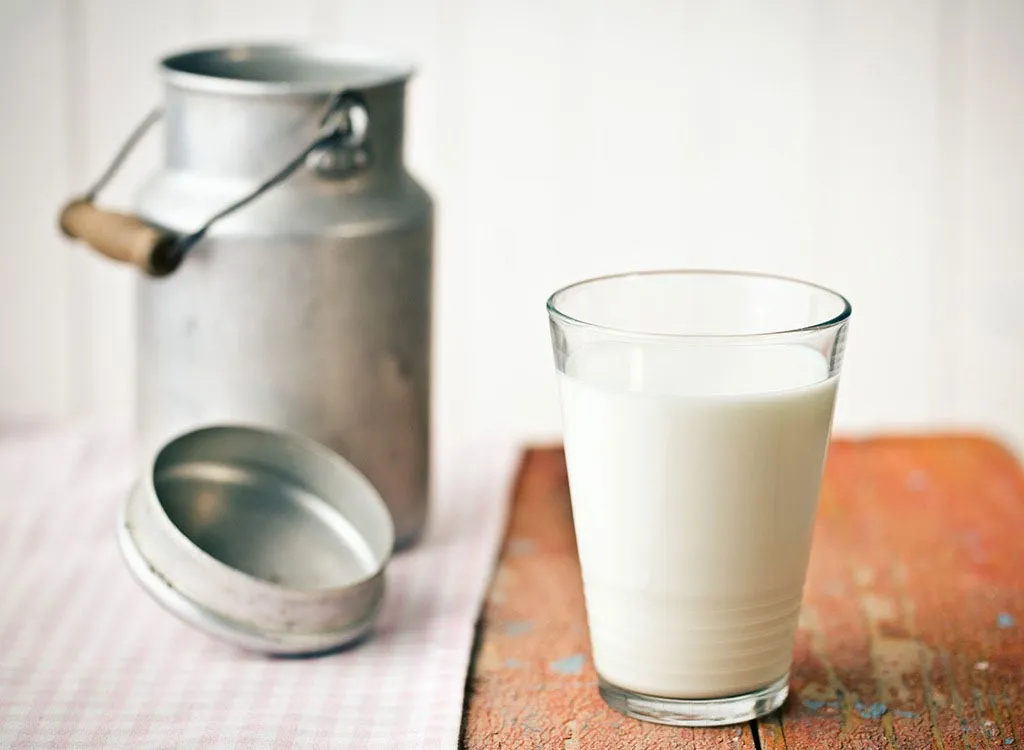
Forgoing all fats isn't the key to a better bod. Yes, no one's denying that trans and saturated fats should be avoided because they can increase your risk of heart disease and obesity, but there are healthy fats out there that you should embrace. And we're not talking about products labeled as low-fat, reduced-fat, or fat-free—companies compensate for this loss of fat by adding carbs and salt—but products that are full-fat. Don't let that name scare you. A study in the American Journal of Clinical Nutrition found that people who ate dairy that was high in fat were less likely to have suffered from diabetes.
You use artificial sweeteners.
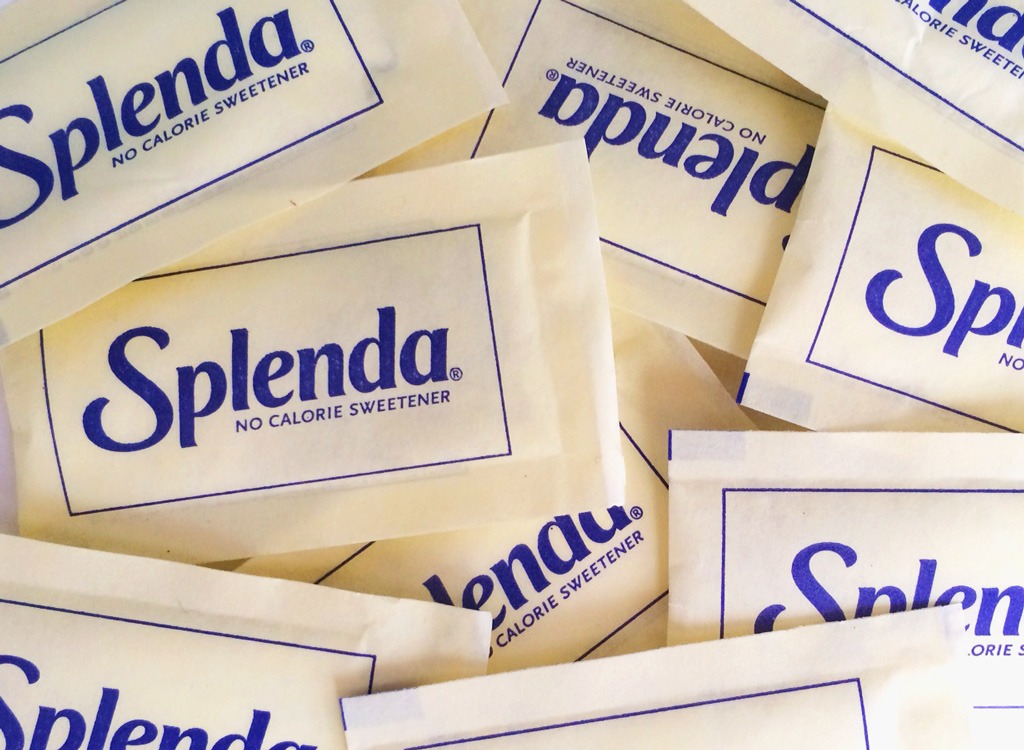
That diet soda you're drinking isn't doing you any good. Just because you won't find sugar on the ingredients list doesn't mean other stuff isn't lurking there in its place. In fact, the artificial sweeteners used to replace sugar—think acesulfame K and sucralose—may benefit your bod even less. According to research conducted by Purdue University, rats who were given artificial sweeteners before they ate ended up consuming more calories with each meal. Other studies have led researchers to believe that these additives could lead to overeating, and therefore weight gain. But that doesn't mean we're encouraging you to return to regular soda. Try easing yourself into seltzers and sparkling waters instead for carbonation in a can that doesn't widen your waist.
You make the gym your home.

If you spend more time on the treadmill or in tree pose than you do at home, believe it or not, that's a problem. It is possible to have too much of a good thing and you could be preventing progress by overdoing it in the gym. While a regular workout routine is important for weight loss results, it's just as important that you're giving your muscles time to recover. It's not only that they won't be able to lean out with nonstop exercise, but they'll be more susceptible to injury. So slow it down and keep things steady; your transformed torso will thank you in the long run.
You skip meals.

There's no harm in skipping breakfast or passing on lunch, right? Well, perhaps one if you're partaking in intermittent fasting. However, missing too many meals can bump up the number on the scale by slowing your metabolism. When you deny yourself food, you end up holding onto fat and possibly overeating the next time you sit down at the kitchen table. It's not ever a good idea to deprive yourself, but it's especially detrimental in the beginning of the day. According to a study in the American Journal of Nutrition, missing your morning meal can lead to the opposite of what you were intending by increasing inflammation.
You don't eat before exercising.
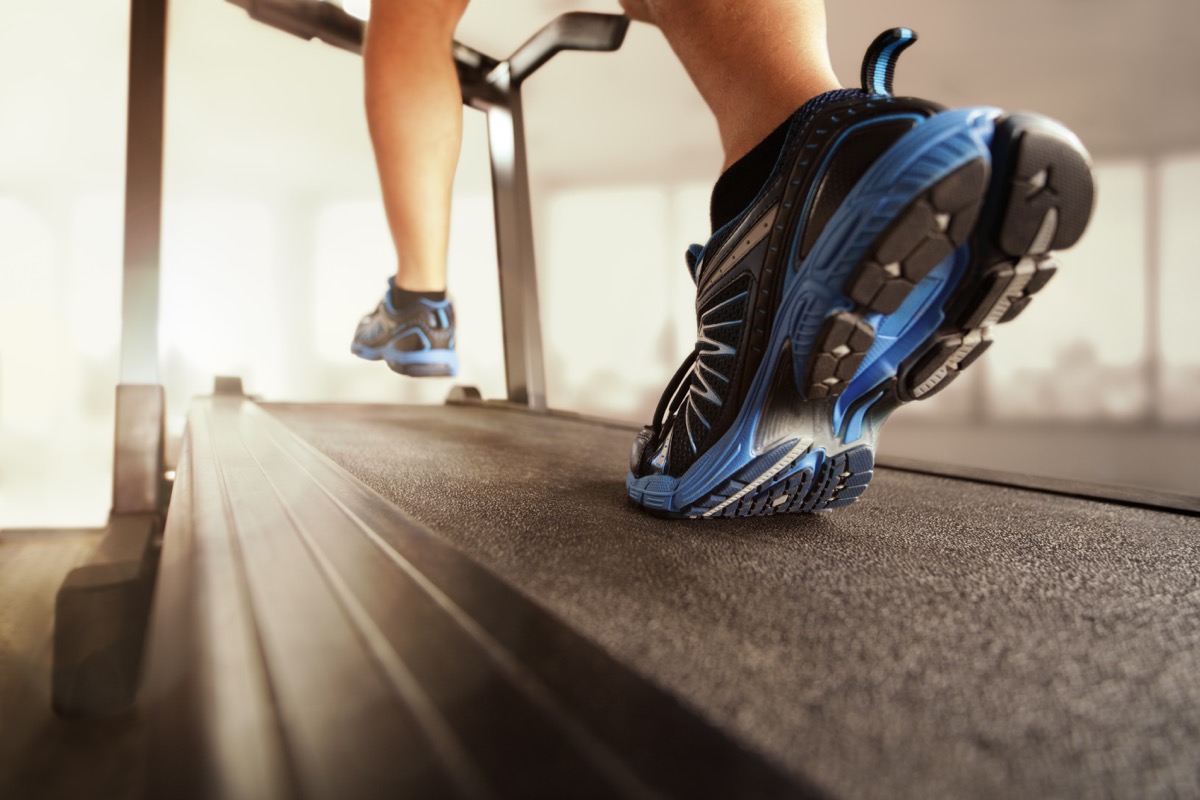
Fasting before a workout is just downright dangerous. No food means no fuel, which could cause you to become lightheaded, not to mention starving post-workout. Odds are good that you'll cancel out your gym time by eating in excess as soon as you get home. That's why you've got to be smart about each sweat sesh and eat beforehand. If you pick protein, you'll end up seeing more rapid results as you work out harder and longer.
You're mindfully eating.

There's nothing wrong with paying attention to the food you allow into your body, but while mindful munching is generally a good thing, it can backfire. Stress in any area has been linked to weight gain because of the release of cortisol and ensuing insulin production, which slows metabolism, according to a study in Biological Psychiatry. So if you've taken your calorie counting too far and are starting to obsess, take a step back. You might just be doing your body more harm than good.
You eat whole wheat bread without restraint.
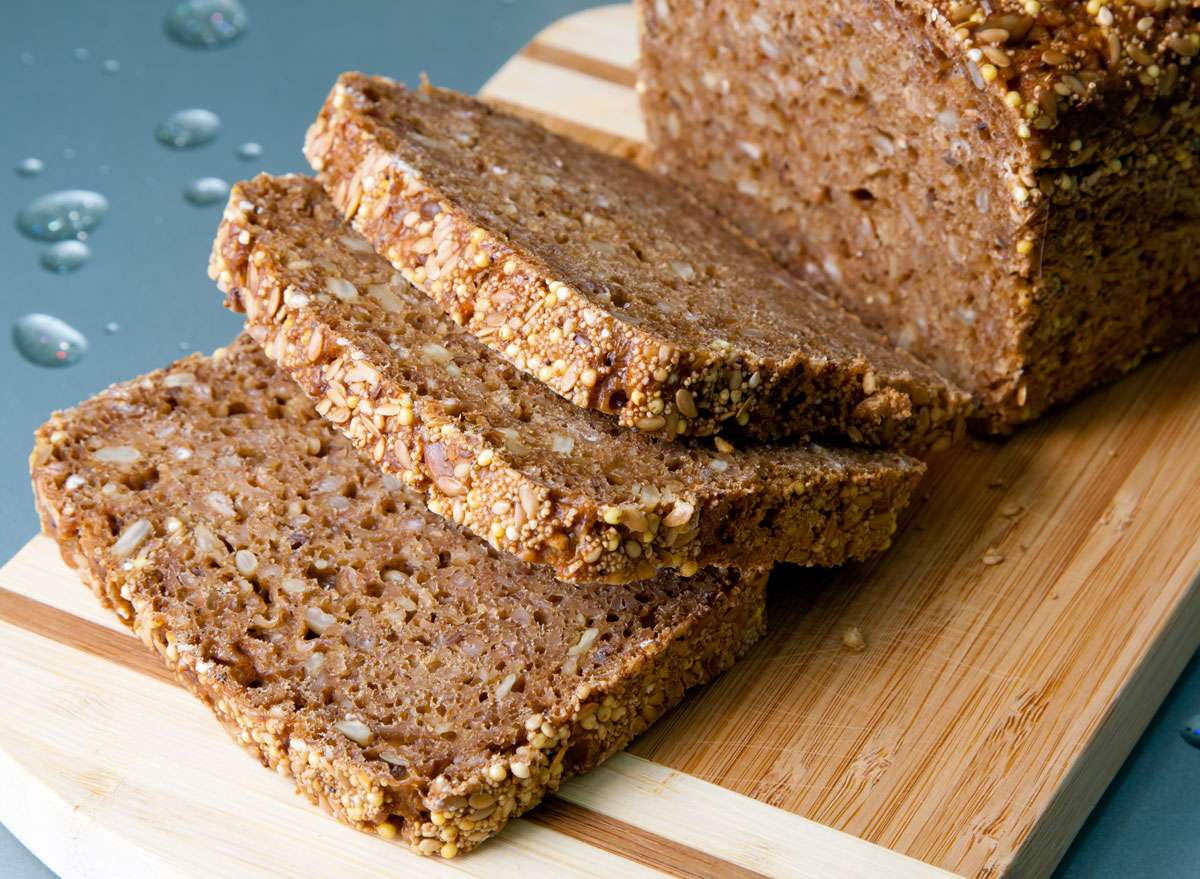
Wondering if there's a difference between multigrain and whole-grain bread? Hint: it's a big one. Whole grain contains three parts of the grain, which are all rich and nutrients and full of fiber, but don't think that makes all brown bread automatically better. Multigrain is just composed of different kinds of refined grains and wheat bread often times has the same glycemic load as white bread. Glycemic load is how much food spikes your blood sugar. The higher the spike and fall, the more likely you are to be hungry soon after eating, and the more likely you are to indulge in more food and gain weight. Because whole wheat bread is basically the same as white bread but made without bleached flour, it's not much better for you. So don't let yourself be fooled. If there's no "whole wheat" label, it's a no-go. To make things easier for you, you can also opt for the nutritionist-approved healthiest breads.
You Snack Between Meals

Don't force food on yourself if you aren't feeling it. Bringing a protein bar or bag of nuts to work is fine if you start craving a little something before your lunch break hits, but don't think it's necessary. Some people think eating more frequently is the key to weight loss, but according to a study in Hepatology, people who divide their calories into three small meals with snacks in between actually develop more belly fat than those eating the same amount of calories in three meals.
